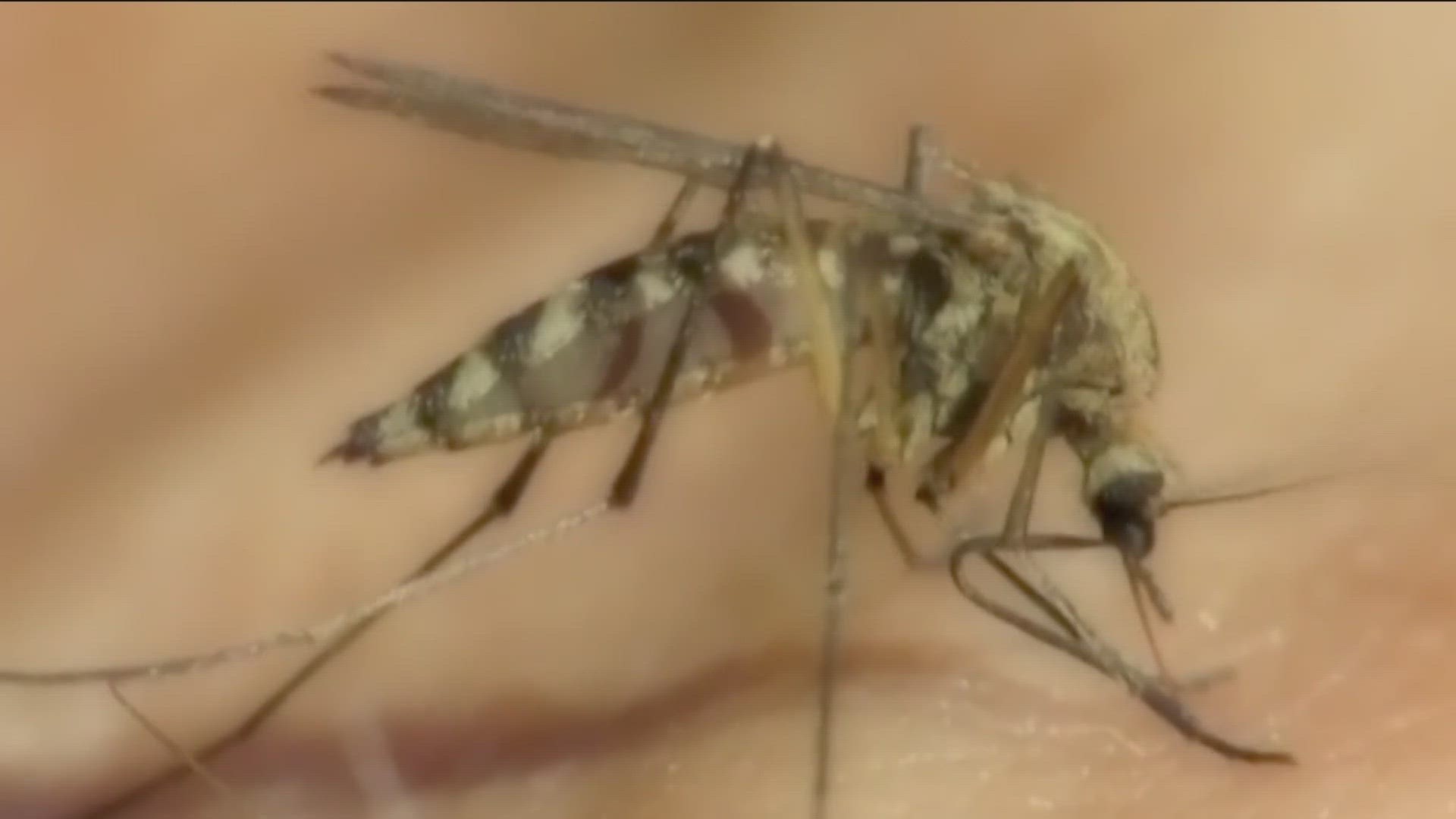DEKALB COUNTY, Ga. — The DeKalb County Board of Health confirmed Thursday that a resident has been infected with West Nile Virus -- the first human case confirmed within the county in three years.
The county added it is investigating two other possible cases.
Board of health officials said the infected person is a man in his 20s who lives within the Atlanta portion of DeKalb County. The two other suspected cases are in the Lake Claire and North Druid Hills area of the county.
Investigations into all three are still ongoing, health board officials said.
According to officials, this is the first human-confirmed case of West Nile that the county has investigated since 2020. The county has already begun treating low-lying areas and storm drains with larvicide -- meant to keep young mosquitoes from becoming flying, biting adults -- including the area where the infection has been confirmed.
Earlier this summer, mosquitoes carrying the virus were found in neighboring Fulton County, within Alpharetta, Johns Creek and other areas. No cases of the virus were confirmed at the time.
What are the symptoms of West Nile Virus?
According to the Centers for Disease Control and Prevention, most people do not develop any symptoms, but about 1-in-5 people could develop a fever with other symptoms, including:
- Headache
- Body aches
- Join pain
- Vomiting
- Diarrhea
- Rash
About 1-in-150 people can develop a serious infection, which can affect the central nervous system and cause encephalitis, or inflammation of the brain, or meningitis, inflammation of the spinal cord. Other symptoms associated with a serious infection include a high fever, headache, neck stiffness, disorientation and other neurological issues. People over 60 and those with underlying conditions are at greater risk of severe infection, though anyone is susceptible.
Health officials stressed that anyone who might have spent a significant amount of time outside without wearing an insect repellant and is experiencing symptoms to have their symptoms evaluated by a medical professional, as West Nile Virus and COVID-19 share similar symptoms. There is no evidence that suggests COIVD cam be spread by mosquitoes, according to the CDC.
There are currently no vaccines or specific medicines available to treat an infection.
Tips to get rid of mosquitoes around your home
To reduce mosquitoes in and around homes, the DeKalb Board of Health suggested the following:
- Eliminating standing water in gutters and other items like planters, toys, wheelbarrows and old tires to curb breeding areas
- Trimming tall grass, weeds and vines to discourage them from resting
- Keeping window and door screens tightly-fit to keep mosquitoes out
How to prevent being bitten by mosquitoes
- Reduce outdoor exposure at dawn and dusk, when the mosquitoes that could potentially carry West Nile virus are most active.
- Use an insect repellent containing DEET, picaridin, oil of lemon eucalyptus or IR3535
- Spray clothing with products containing permethrin
- Wear long-sleeved shirts, long pants and socks when outdoors, particularly at dawn and dusk and in areas with large numbers of mosquitoes.

